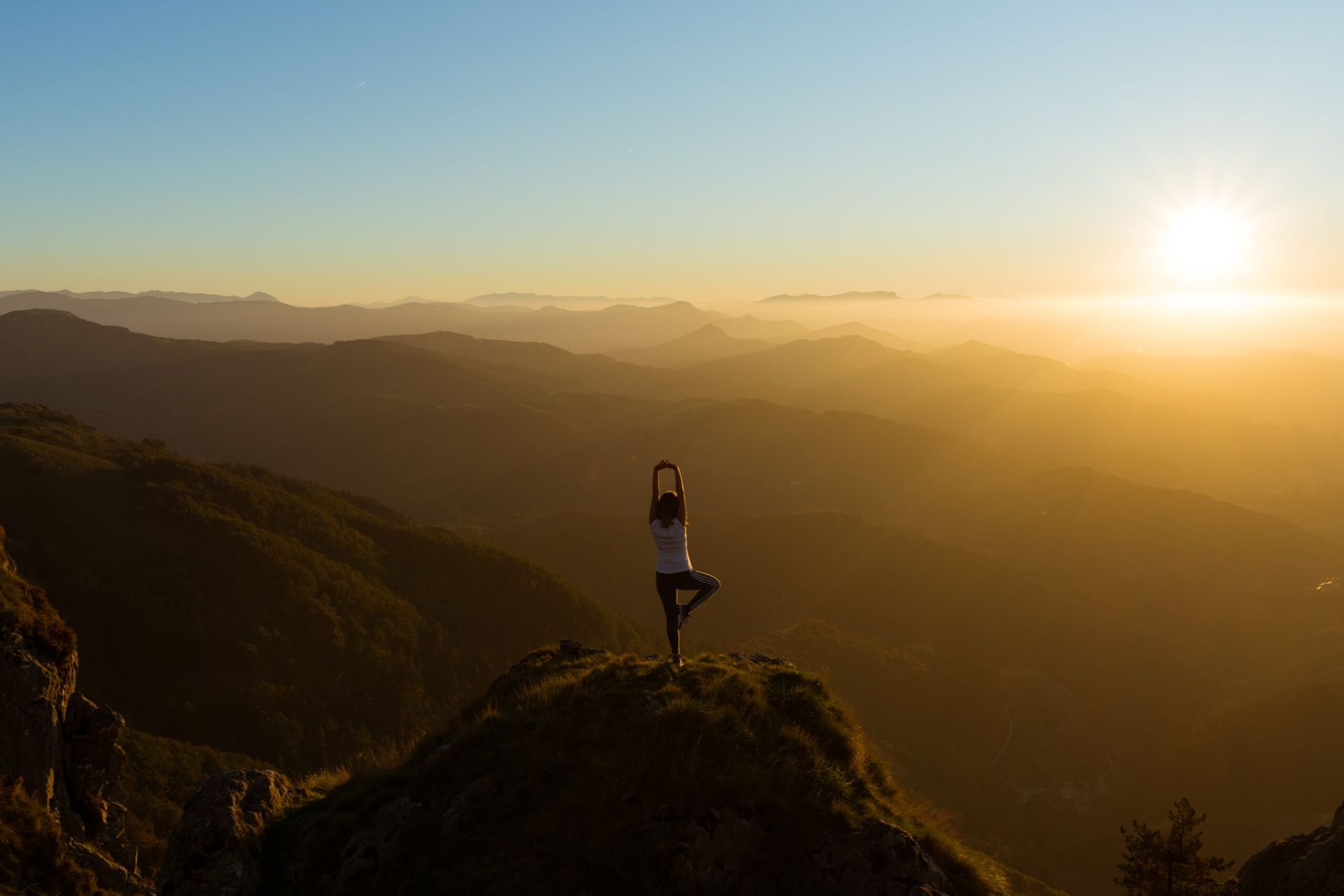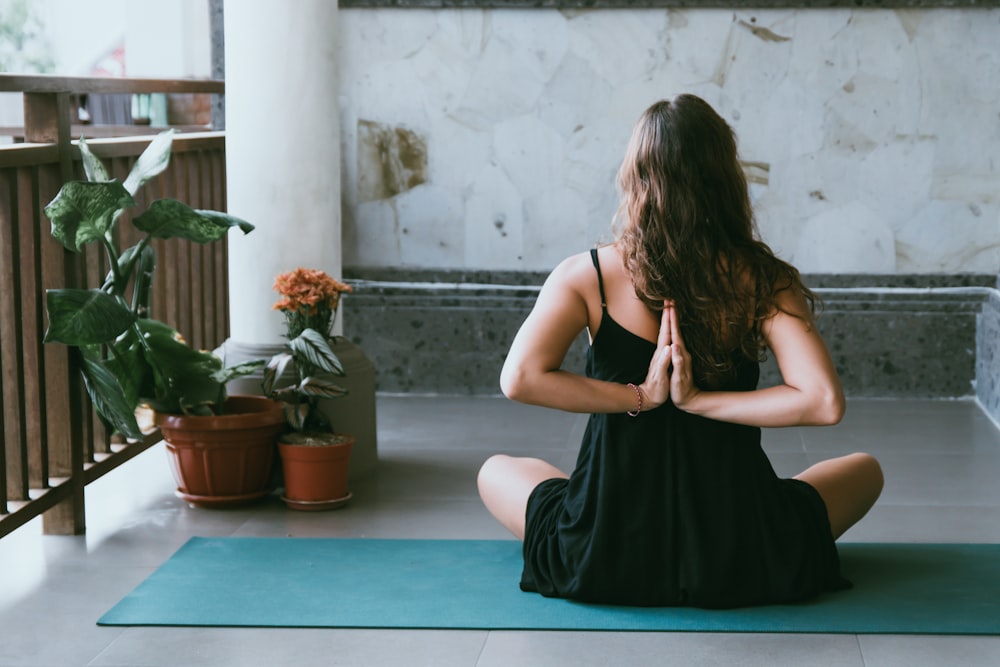
Self-discovery retreats are an incredible way to get to know yourself better, discover who you are and what you’re made of, heal from trauma, reduce anxiety, and rediscover yourself after a toxic relationship. There are many other reasons people go to a self-discovery retreat, and many other benefits of self-discovery retreats as well.
Anyone experiencing a major life transition, such as a divorce, breakup, laid off from their job, spiritual awakening, career change, healing from trauma, graduation, or just generally questioning their purpose in life, can benefit from going on a self-discovery retreat.
A Self-Discovery Retreat VS a Wellness Retreat
You might be wondering, is a self-discovery retreat the same as a wellness retreat? Relational trauma coach and founder of Becoming Aware, Teresa Lodato, points out that while they are similar, self-discovery retreats focus more on inward development and self-reflection than on general health and wellness.
Lodato explains, “Although self-discovery retreats can include components of a wellness retreat as well, in my retreats, healthy meals, daily movement and meditative practices are part of the daily routine. However, the bulk of the retreat is focused on question prompts and sharing to gain clarity, along with ample time for self-reflection.”
Trauma coach Teresa Lodato also stresses the importance of making sure that you’re in a mentally healthy place before coming on a self-discovery retreat.
Why is it Best to Attend Some Therapy Sessions Before Embarking on a Self-Discovery Retreat?
A self-discovery treat is often a great next step to take, after you’ve already taken steps towards healing by going to counseling sessions or therapy. Once you’ve started to feel healed, and you’re starting to feel back to your old self again, you can sometimes take your self-development journey to the next level with a self-discovery retreat.
Lodato explains, “Don’t come to these retreats if what you really need is therapy. Although no one is perfect and we are all working on becoming the best versions of ourselves, the need for deep, therapeutic one-on-one support isn’t always possible at these retreats, and it would be better to wait until you’ve gotten a handle on whatever you are going through and have put into practice solid tools to support your mental health needs.”
Considering all of this, let’s explore the self-discovery retreat process and discuss what typically happens on a self-discovery retreat.

Self-Discovery Retreat Do’s and Don’t’s
Everyone at a self-discovery retreat is on a personal journey, and there are some things to keep in mind to ensure that everyone (yourself, your fellow attendees, and the retreat leaders) get the most out of the experience.
For starters, retreats are obviously an escape from the stresses of everyday life and the distractions that keep us from getting to know ourselves and discovering the truth about who we are. So, an obvious rule of thumb is to leave those distractions behind.
Do not bring your phone, laptop, tablet, magazines, or anything else that can pull focus away from the experience along with you on retreat. At the very least, turn off your electronics while you’re at the center (this is a rule at most retreats anyway), but if the temptation of simply having your phone is too great to resist checking it, leave it behind. Some retreats even discourage speaking, unless it’s during an allotted question-and-answer period.
What about bringing a friend with you on a retreat? Teresa Lodato advises against it. “My personal opinion is that it is better to travel to a retreat alone. This allows you the impetus to get out of your comfort zone and places you in a growth opportunity.”
It’s true that we are more likely to open up when we’re around people with similar goals who don’t know us yet, but are eager to learn about us. Sometimes we’re less likely to be as open when someone who knows us well, like a friend or partner, is present.
Self-discovery retreats are generally meant to be a solo experience, one that you may share with your friends after you return.
Lodato clarifies, “You can bring a friend, but I would highly encourage you to not enter into practices with them during the retreat. Instead, choose someone you don’t know for triad and diad practices, and take the opportunity to have your own experience. At the end of the day, it’s nice to share your experience with someone, but just make sure it is your own experience.”
Lodato encourages self-discovery retreat participants to bring an open mind, a willingness to engage with the experience as it’s laid out, and to be prepared to spend lots of time in contemplation, since “the majority of transformation happens between the words/sessions”.
The final ‘do’ is to ask questions, both of your retreat leader and of yourself. “The retreats I’ve offered allow time for question prompts, then loads of time for introspection and quiet,” says Lodato.
What Does a Typical Day on Retreat Look Like?
Most likely your retreat center will consist of early rises and early bedtimes in order to get the most out of your days spent there. Meal times will be scheduled and will likely be held at a large communal table in a mess hall or cafeteria. You might be able to order your meal in advance or it may be served buffet style. Healthy, nutritious fresh food is the norm on retreat.
Retreat activities vary depending on the values of the people that organize them, and it’s not hard to find one that is well-catered to what you’re looking for. For example, if you are a more active or athletic person, you can look for retreats that offer more physical activities or have access to some hiking trails. If you consider yourself more artistic, perhaps a retreat centered around artistic expression is more your style.
During one day of your self-discovery retreat, you might even get a sacred ice bath. If you’re becoming more spiritual, a self-discovery retreat that involves spiritual practices such as the ‘rebirth’ of the new you (from taking a symbolic and ritualistic ice bath) might suit you best. Many retreats incorporate some kind of movement such as yoga, hiking, or tai-chi as part of their daily routine, as this amplifies wellness and improves your state of mental well-being.
According to Lodato, “The bulk of the retreat is often focused on question prompts and sharing to gain clarity, along with ample time for deep self-reflection.” You will alternate between spending time sharing in group sessions and spending time alone in quiet contemplation and meditation.
You’ll be prompted with questions meant to help you discover who you truly are, and you’ll have lots of time for introspection, so you should definitely bring a journal.
You’ll also enjoy a lot of beautiful scenery and nature depending on where your self-discovery retreat is located. Stunning scenery and abundance of nature or wilderness can significantly help get your mind flowing, leading to epiphanies about yourself that you may want to journal about.

What Are Some Challenges You Might Encounter on a Self-Discovery Retreat?
Nothing worth doing is ever without challenges, and retreats are no exception. The purpose of a self-discovery retreat is obviously to learn more about yourself, which is so important, and lots of complex and difficult feelings tend to pop up in the process.
“People who have experienced past trauma can be nervous about practices involving respectful touch, feeling uncertain about what is being expected from them, anxious that they are being judged by fellow retreat attendants or leery about opening up,” says trauma coach Teresa Lodato.
In her experience with retreats, Lodato also notices that attendees who have conflicting intentions for the retreat tend to have a harder time than people who come with a clear intention in mind. “It is therefore important that I communicate prior with attendees the purpose of the retreat. People come with different goals. My role is to make sure they get the most value from the experience and having a singular intention allows for the best experience. [Making progress in one area] usually meets other desires in the process.”
Lodato advocates for the importance of paying attention to what your body tells you as emotions come up. “I’ve noticed that for people who experienced relational trauma, migraines and digestive issues due to anxiety can arise as we touch upon elements that bring their repressed emotions to the surface (especially anger in the form of resentment). A value held in my retreats, self-care is important as when you grow you become vulnerable, much like a snake is vulnerable as it outgrows and sheds its skin.”
What is Included in the Cost of a Retreat?
Retreats can sometimes come with a hefty price tag, so let’s break down what’s all included, and keep in mind that your mental health and physical health are both worth investing in.
The most obvious expense at these types of retreats is food and lodging. Higher-end centers have different price points depending on the type of lodging you want (private or shared) or a specific meal plan, but a typical retreat center will charge the same per person.
Your transportation to the retreat center will be partially included in the cost. If you have to fly or travel long distances, you are responsible for the cost of your train or plane ticket, but there will likely be a shuttle bus or carpool that can pick you up at the airport or station and then drop you off again. The same service will be provided if your retreat includes any excursions or day trips.
Speaking of day trips, local guides will need to be paid as well, as will retreat leaders, yoga instructors etc. This means that part of the cost of your fee for attending a self-discovery retreat goes towards those services, and the remainder will go towards maintaining or renting the property where the retreat is held.
Where Are Retreats Typically Held?
Some retreats are held in luxury spas, yoga centers, or community centers, but many are held in the wilderness or maybe even in small towns. The most peaceful retreats take place well beyond the city limits to eliminate needless noise, distractions and tension.
While there are plenty of ways to retreat, the retreats held in the wilderness can offer you a chance to really unplug and find your back to yourself in the quiet, especially if they include minimal amenities like running water, heat, and electricity. These types of retreats can certainly be more challenging, but if you are well-prepared, the pay-off is worth it. You can also benefit from resetting your circadian rhythm by sleeping in a tent and being on a schedule while on retreat.
However, keep in mind that there are many, many ways to retreat, and some retreats might be better suited to your personality and preferences than others. Before committing to any self-discovery retreat, you might want to consider taking a DNA test from CircleDNA, as your results can tell you more about your personality and possible underlying mental health conditions, and from there you can find a retreat that’s right for you.
Your CircleDNA test will also help you discover more about yourself, which over 500 reports about you, based on your genetics. Since a big reason people go to a self-discovery retreat is to learn more about themselves and discover themselves, taking this CircleDNA test to discover key information about yourself aligns with those goals.







This Post Has 2 Comments
Comments are closed.